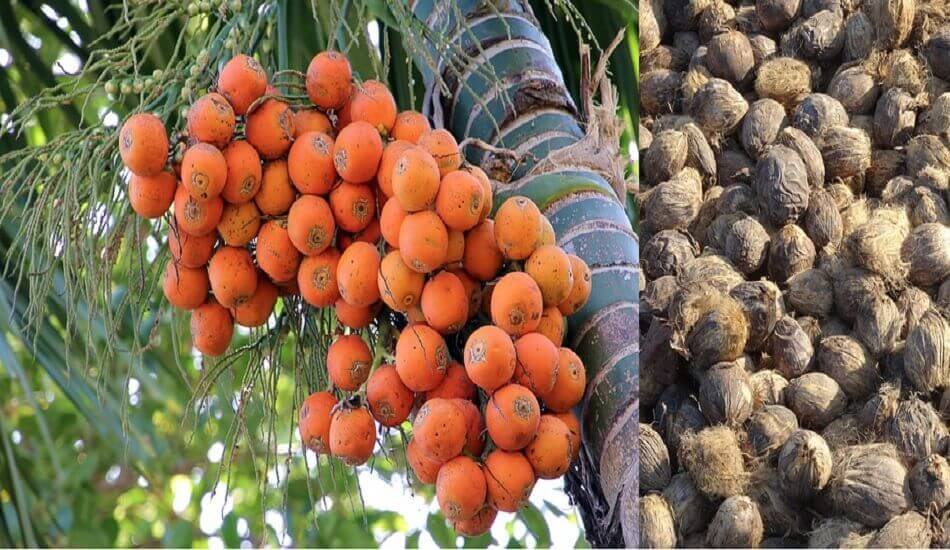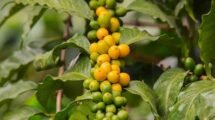‘Aatmanirbhar’ India has been importing arecanut from countries UAE, Singapore
According to data provided by the Centre in the Lok Sabha, India has been importing arecanut from countries such as the UAE and Singapore. Stakeholders in the arecanut sector have been calling for strict controls on arecanut imports, claiming that the country is self-sufficient in production.
Anupriya Patel, Union Minister of State for Commerce and Industry, stated in a written response to Nalin Kumar Kateel, a member of Parliament from Dakshina Kannada, that the country’s arecanut production in 2020-21 was approximately 15.63 lakh tonnes. During the fiscal year, the country imported 23,988 tonnes of arecanut worth ₹508.59 crore.
Also Read | Govt intend to achieve Aatmanirbhar in edible oil under oil palm cultivation.
India’s arecanut imports stood at 17,890 tonnes (provisional data) valued at ₹468.12 crore in the first ten months of the current fiscal year 2021-22. This included imports from countries such as the United Arab Emirates and Singapore. During the period, the country imported 612 tonnes of arecanut valued at ₹12.28 crore from the UAE, as well as 93 tonnes of arecanut valued at ₹2.45 crore.
Apart from the aforementioned countries, India imported arecanut from Sri Lanka (9,076 tonnes worth ₹283.53 crore), Indonesia (4,885 tonnes worth ₹84.21 crore), Myanmar (2,882 tonnes worth ₹76.75 crore), Malaysia (222 tonnes worth ₹5.83 crore), and Nepal (120 tonnes worth ₹3.07 crore) between April and January 2021-22.
Campco is concerned
Kishore Kumar Kodgi, President of Central Arecanut and Cocoa Marketing and Processing Cooperative (Campco) Ltd, expressed concern about arecanut imports, telling that the UAE, Singapore, and Nepal do not grow arecanut. However, arecanut imports from these countries are surprising. ‘We believe arecanut is being illegally re-routed through these countries,’ he explained.
Kodgi stated that cheaper imported goods affect demand for Indian arecanut in the domestic market and that there is always the risk of illegal imports affecting the domestic market. Strict measures must be put in place to prevent such illegal arecanut imports from other countries, he said.
He stated that the country’s current arecanut production is sufficient to meet the needs of the domestic market.
Noting that the Prime Minister has emphasised the importance of aatmanirbharta in all sectors, he stated that arecanut imports have an impact on the domestic arecanut sector, which is already ‘aatmanirbhar’ (self-sufficient) in production.
Measures of control
Concerning the steps taken to discourage the import of arecanut into the country, the Minister stated that arecanut imports into the country are restricted by imposing a 100% import duty. The least-developed SAARC countries, however, such as Bangladesh, Bhutan, the Maldives, Nepal, and Afghanistan, have been exempted from paying the entire import duty.
She also stated that Customs officials have been advised to carefully examine the rules of origin to ensure that arecanut grown in countries other than SAARC is not imported through neighbouring countries taking advantage of import duty exemption under SAFTA.
South Asian Free Trade Area (SAFTA)
The South Asian Association for Regional Cooperation’s (SAARC) free trade agreement is known as the South Asian Free Trade Area (SAFTA). The agreement, which replaced the 1993 SAARC Preferential Trading Arrangement, went into effect in 2006. Afghanistan, Bangladesh, Bhutan, India, Maldives, Nepal, Pakistan, and Sri Lanka are SAFTA signatory countries.
Also Read | MP’s claim on Areca nut ‘shocking’, misleading Areca farmers – CAMPCO.
Aside from that, a minimum import price (MIP) has been imposed on arecanut to limit unrestricted imports and to prevent inferior quality arecanut from entering the Indian market and destabilising domestic prices. Currently, the MIP is set at 251 per kg CIF (cost, insurance, and freight). The import of arecanuts with a value less than this is prohibited.
She stated that the FSSAI (Food Safety and Standards Authority of India) has instructed its field offices to strictly adhere to arecanut quality standards prior to clearing import consignments.


















Add Comment